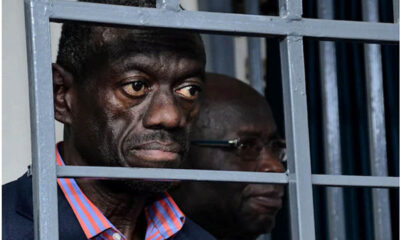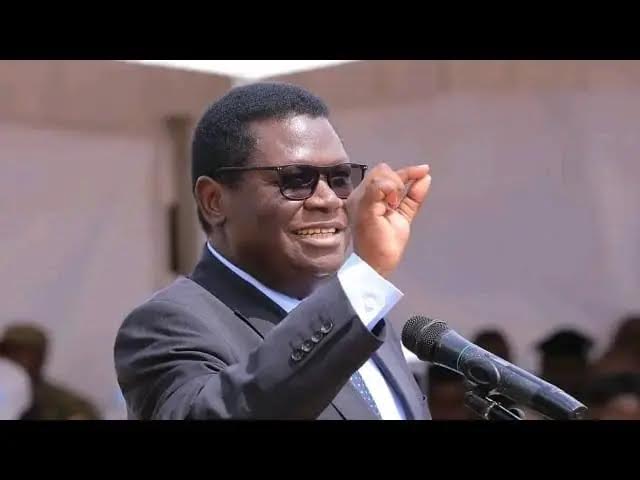
Opinion: President Museveni at 80: A Symbol of Stagnation and Failed Legacy
As President Yoweri Museveni marks his 80th birthday, Uganda stands at a crossroads—burdened by a leader who, rather than ushering in a new era of political, economic, and social prosperity, symbolizes stagnation, personal glorification, and national despair. The grand celebrations around Museveni’s birthday have less to do with Uganda’s achievements and more with his personal legacy, which has veered far from the ideals he once claimed to uphold.
Museveni’s journey from rebel leader to president was, in its early days, a tale of hope. But what does his presidency offer Uganda at 80? Unfortunately, it appears Museveni’s long tenure has morphed into an obsession with self-preservation and maintaining control over the state. Once heralded as a liberator, Museveni now embodies the very authoritarianism he vowed to dismantle.
One of the most glaring issues with Museveni’s rule is the near-complete erosion of democratic principles in Uganda. The once-promised “fundamental change” has instead become a cycle of rigged elections, political repression, and a refusal to step down. This behavior is not only undemocratic but dangerous, as it blocks opportunities for new leaders and fresh ideas to emerge. His reliance on military power—largely controlled by his family—cements a dynastic hold on Uganda’s future, leaving the National Resistance Movement (NRM) in a state of ideological decay.
Moreover, Museveni’s economic legacy is marred by inequality, corruption, and missed opportunities. While his government touts superficial gains, Uganda’s broader population continues to suffer from unemployment, poor healthcare, and inadequate education. The supposed “economic transformation” boasted during his celebrations rings hollow when one sees the growing disparities between the elite close to Museveni and the struggling masses. His government’s track record of nepotism and prioritizing political loyalty over competence has stifled innovation and progress.
The lavishness of Museveni’s birthday celebrations starkly contrasts with the daily hardships many Ugandans face. What exactly are we celebrating? The president’s 38 years in power, which have brought more personal enrichment to his family and cronies than meaningful change to Uganda’s citizens? The failure to honor promises of democratic reforms, job creation, or respect for human rights?
What is perhaps most alarming is the uncertainty surrounding the future of the NRM and Uganda as a whole. With no clear succession plan and the party now dominated by cheerleaders rather than visionary leaders, the country risks plunging into chaos once Museveni inevitably leaves the scene. His iron grip on power has marginalized capable leaders and eroded institutions that could otherwise ensure stability and prosperity for the nation.
At 80, Museveni should be reflecting on the damage his extended rule has caused and seriously considering stepping aside to allow Uganda to heal and rebuild. Instead, the pomp around his birthday showcases the growing detachment between him and the people he claims to serve. Ugandans deserve better—an opportunity to choose their leaders, build institutions, and reclaim their future from the grip of a ruler who long ago outstayed his welcome.
Related
Opinion: President Museveni at 80: A Symbol of Stagnation and Failed Legacy
News
Ugandan Citizen Abducted, Held in Secret Detention for Three Months, Sparks Outrage and Calls for Justice

A disturbing new case of unlawful detention has surfaced, highlighting the ongoing human rights crisis in Uganda. A Ugandan citizen was reportedly abducted and held in a secret facility, known as a “safe house,” for three months, only to be released without charge or explanation. This incident, reported by NTV Uganda, has sparked widespread condemnation and renewed calls for accountability regarding human rights abuses in the country.
While the details surrounding the abduction remain unclear, reports indicate that the individual was taken without due process and held incommunicado—an action that has long been condemned by human rights organizations. The victim’s release, with no charges filed and no clear justification, has angered activists and citizens, who view this as yet another case of egregious abuse of power by the state.
“This is a recurring pattern,” said one human rights activist. “Abductions, secret detentions, and unexplained releases have become all too common in Uganda. These acts violate fundamental human rights and erode public trust in the justice system.”
The use of “safe houses,” unregistered detention facilities reportedly operated by security forces, has been a focal point in numerous allegations of torture and illegal imprisonment. Despite repeated calls from both local and international organizations for their closure and accountability for those involved, little action has been taken to address these violations.
This case underscores the urgent need for reform within Uganda’s security apparatus and greater accountability for human rights abuses. Observers hope that drawing attention to these injustices will spur concrete action to bring those responsible to justice and ensure the protection of basic human rights.
As frustration mounts, calls for both domestic and international pressure to hold the government accountable for such crimes grow louder. “One day, there must be accountability for all these crimes against our people,” stated one social media user, reflecting the sentiments of many Ugandans.
News
NUP Gathering Disrupted: Kyagulanyi Alleges Security Force Harassment and Arrests

National Unity Platform (NUP) President Robert Kyagulanyi has accused Ugandan security forces of using excessive force to disrupt a planned NUP gathering. The allegations were detailed in a statement shared on Twitter, following an event held to honor children of NUP supporters who were killed, disappeared, or detained for their political beliefs.
According to Kyagulanyi, security personnel, under the command of an officer identified as Asiimwe, carried out a preemptive operation early in the morning upon learning of the NUP’s plans. The forces allegedly stormed the premises, arrested workers, and deployed tear gas to disperse those present.
“The criminals under the command of one Asiimwe deployed early morning, arrested our workers, and threw tear gas into our premises. They’ve cordoned off the premises and blocked all people from accessing the place,” Kyagulanyi wrote.
Among those reportedly arrested were Saava Peter, Mudenya Samson, and Turyasingura Samson. Kyagulanyi claimed the detained workers were subjected to beatings and interrogated about their political affiliations, with security operatives labeling them as terrorists.
“These JATT operatives asked the workers who they support politically, branding them terrorists and criminals—their only crime being that they work with us. You can imagine the indignity!” Kyagulanyi lamented.
This incident adds to the growing tension in Uganda’s political climate, where opposition parties frequently accuse the government of stifling dissent. Despite the challenges, Kyagulanyi ended his statement with a message of defiance and optimism, proclaiming, “UGANDA WILL BE FREE.”
NUP Gathering Disrupted: Kyagulanyi Alleges Security Force Harassment and Arrests
News
Sudan Demands Apology from Uganda Over Army Chief Muhoozi Kainerugaba’s Threat to Invade Khartoum

Sudan has demanded an official apology from Uganda over “offensive and dangerous” comments made by the chief of Uganda army staff, who threated to invade Khartoum, the Sudan Tribune has reported.
General Muhoozi Kainerugaba, son of Ugandan President Yoweri Museveni and CDF of the Ugandan army, posted two comments on the X platform on Tuesday in which he threatened “to capture Khartoum” with the support of the US President elect Donald Trump after he takes office. The posts were deleted later.
“The government of Sudan demands and official apology from the Ugandan government for the offensive and dangerous comments of the army commander,” Sudan’s foreign ministry said in a statement that the Sudan Tribune said it has seen.
Sudan Demands Apology from Uganda Over Army Chief Muhoozi Kainerugaba’s Threat to Invade Khartoum







